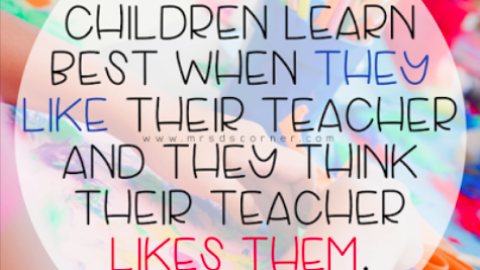What is often not noted in school is the ripple effect of bullying. Especially in a therapeutic school, but in any school. It is seen as necessary right of passage in middle school, in particular. Say a youngster who is having his own problems bullies and targets a sensitive and moody child. That is like oil on the fire of already reactive youth. That child loses control, reacts in school and gets into trouble. Teachers then give negative feedback as a part of correction. That spirals the problem to be even worse in case of sensitive child. Teachers may also call parents if child reacts. Parents feel they are inadequate and criticized, and may get upset with child for lashing out at school and give more negative feedback to the child. Of course parents are very protective also of their own children and may get upset with school too which causes another kind of teacher-parent friction. So the child is impacted in the domino effect, consciously or subconsciously, from bullies to victims to teachers to parents. And more importantly also by how the children ends up feeling, themselves. The domino effect cascades into their moodiness, that in turn rolls on to impact attention negatively to accomplish tasks in school. This hopefully will not be diagnosed as ADHD. So what do you do? Most important things are as follows:
- Develop insight into the cascade of events and who ever you are, parent or teacher, can help explain the context, separate other’s problems (such as a jealousy or insecurity of the bully) from the child’s own issues. Pay attention to the domino effect.
- Teachers and parents hopefully can be empathic with all parties in this dominoes effect and be kind to understand each other’s feelings with respect and build the people. Explaining with compassion and helping diffuse the accruing animosity by meeting with all parties (bully and victim together or separately) is much more helpful than matter of fact explanations towards consequences alone. This includes parent-teacher communications.
- Teach skills. They include saying cool things to ward off teasing like “Whatever,” “So?,” “yeah right,” or roll your eyes and walk away, or best to WALL THEM OFF- i.e., pretend like they are not there. Think- “Teasing has no power on me. It will roll off like water on the duck. I can do this.” Teach how to take good in life and cut off from bad that you cannot solve. Keep words like “Chill” and “Cool as a cucumber” in the head. Hang on to your best friend/s to shield in company and surround yourself with such comfort blanket. End of the day, you have the power. No one else.
- It would be so lovely to have teachers track the bullying and check in with students (or via parents if the child is secretive or closed off about it at school) even afterwards. Listening in a caring way is all that they need at times, right?! Kids tell me that teachers don’t always see it, or don’t do anything or they say ‘you should let us handle it.’ Kids naturally take it very personally. I often think teachers can’t be omnipotent and omni present to deal with all aspects all of the time, and they can only do their best. Also world is not always fair. Children need to get used to the tough moments in life. Teaching them develop teflon coat is not a bad idea.
- All this is over and above universal teachings in school of zero tolerance to being emotionally abusive in school.
















Well, these days , we are teaching the intermediate students , the limbic system , as a part of the lesson on Brain , the most fascinating organ , as you said. I teach them the role of the hippocampus and the ‘Emotion centre’ the Amygdala . I learnt the ‘almond ‘connection , surfing the Net. And reading some good books I purchase , when ever I visit that part of the world. I needed to do so as I am the chief Editor of the text books of Zoology in the state of AP and Telengana. I know it is more complicated than what a college teacher can learn and deliver to the student of average and above average students , if not the ‘unfortunate’ slow learners( so called slow learner). Your presentations made an interesting reading . There is more awareness and counselling on ‘Bullying’ in the western world . As a student of 1960s I too faced some such practices. I got either used to it , or neglected it totally . Thanks for the ‘Education’ and I did enjoy reading some presentations . I guess , I will try and learn more . Thanks for every thing .
Sir, Thanks for reading. As an epitome of editorial expertise and professorship heading large educational institution, I am excited that you read this and hope your teachers get to read too. What is more relevant and fascinating is to move with times for greater good with new knowledge of know how. For a lot of things, it is not a lack of know how. It is deliberate attempt to create the right formula to begin to make changes in doing things. We can dream it and do it. Just like women’s right to vote made possible once upon a time, we need to support and nurture and improve the opportunities for slow learners and regular students alike. I hope your staff or who ever reads it get ideas to change things. We must involve parents as they have ton of talent and can participate in helping kids. respectfully, mani